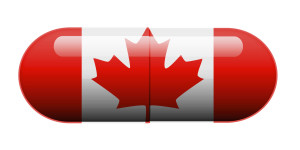Mali is a home to many of Africa’s poorest citizens. Its healthcare system is lacking and its people suffer from a variety of medical conditions due to lack of proper treatment. Poor infrastructure separates the already mistreated and marginalized Malians from the healthcare they need, and many do not have access to skilled medical practitioners, modern treatments, or widespread vaccinations. As such, it is essential to address the infrastructure shortcomings that are hampering the healthcare in Mali.
There are a few key components of the healthcare infrastructure that need to be addressed if Mali is to improve its health care provision. These include medical facilities, transportation, communications, education, and the availability of medical supplies. Currently, medical facilities are too few and extremely limited in their capacity for providing necessary treatments to those that live in remote areas. There are also too few medical personnel available to meet the needs of the individuals in more urban areas.
The transportation infrastructure in Mali is also far from ideal. There are limited resources, making it difficult for people to get to clinics or hospitals for proper medical care. Additionally, the communication infrastructure is often poor, making it nearly impossible to receive medical advice and treatment information from hospitals and other medical personnel.
Furthermore, education is needed to ensure that those in need of medical care receive the treatments they need. Too often, many individuals are reluctant to seek medical care based on a lack of knowledge of their condition, and what treatments are available. Efforts need to be made to ensure that those living in rural areas, especially, are educated about different medical conditions, treatments, and the availability of medical services.
Finally, the availability of medical supplies is critical for providing effective medical care to those in need. For those living in remote locations, the cost of medications and other medical equipment may not be feasible and must be addressed. Additionally, the availability of medical supplies in the area must be addressed as well.
Taken together, these issues spell out a clear need for investment in the healthcare infrastructure in Mali. Improved transportation, communication, and access to medical supplies are all key components to increasing access to care. Additionally, efforts need to be made to educate the population on how they can best access and use the available medical services. Overall, a meaningful investment in Mali’s healthcare infrastructure is essential for improving the health of its citizens.
By investing in Mali’s healthcare infrastructure, numerous benefits can emerge. Improved transportation, communication, medical supplies, and education are just a few of the advantages that can be achieved. The public health of citizens can be improved, and access to necessary treatments can become more easily available across the country. Additionally, a better health care system will only serve to increase the economic opportunities and the quality of life for all Malians.
The healthcare infrastructure in Mali needs to be improved to better meet the needs and health of its people. The current system is inadequate and does not address the issues of isolated populations that require specialized care. With an investment into the infrastructure, improved medical facilities and personnel can be achieved, transportation, communication, medical supplies, and education can be improved and access to care can become more easily available to those living in rural areas. By making the investments, Mali can improve the health of its citizens and set the foundation for a bright future.









